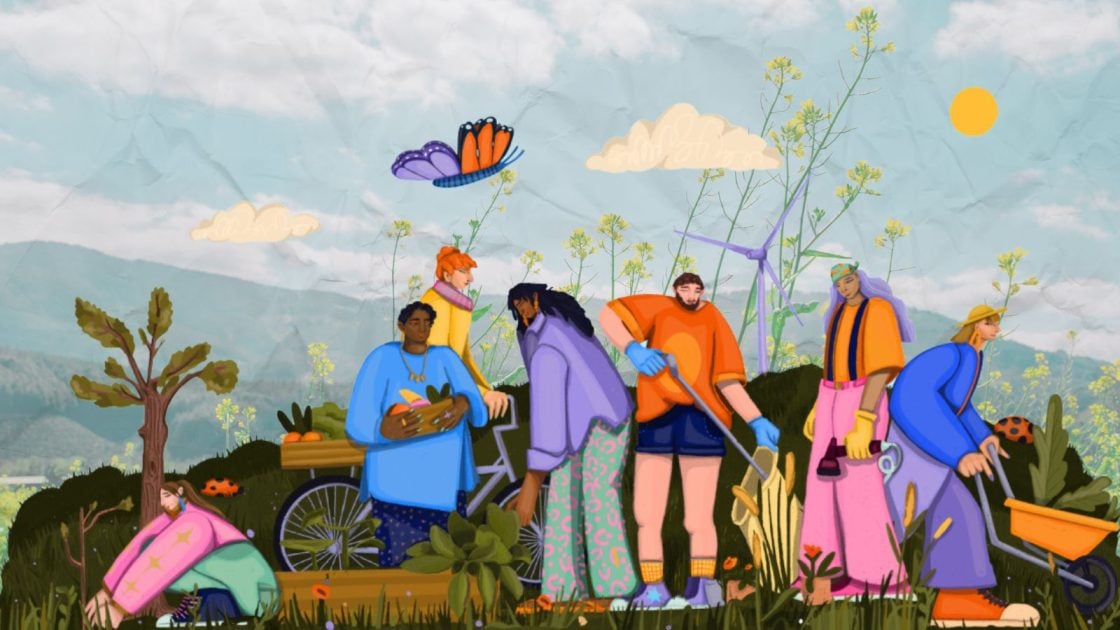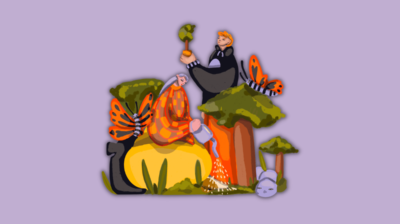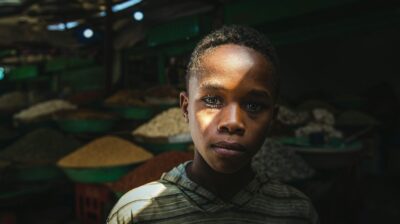My time in Vietnam was a wake-up call about the climate crisis
Presly shares his experience of seeing the devastating effects of climate change in Vietnam and urges you to be involved in climate justice.

TW // This article mentions death related to natural disasters. Please look after yourself if you choose to read on. Our text support service details are listed below.
As a young person growing up in Ireland, I noticed that we are often shielded from the most intense impacts of climate change. The time I spent in Vietnam opened my eyes to the urgent need for climate justice.
We must seek to address not just the environmental challenges, but the social and economic inequalities climate change worsens. In Vietnam, I was able to grasp the deep, often brutal, inequalities in how climate change is experienced around the world.
Understanding why different regions aren’t affected the same by climate change
The climate crisis is a global phenomenon, but its impacts are felt in different ways across different regions. While industrialised nations (like Ireland) are largely responsible for historical carbon emissions, it’s often low-income and the least developed countries, particularly in the Global South, that face the most severe consequences. This imbalance highlights the interconnectedness of our world, where actions taken in one part can have far-reaching and devastating effects elsewhere.
Understanding how industrial activities are impacting the climate crisis in poorer regions of the world is critical to creating a path towards climate justice. Consumer demand for goods, especially those produced in China, India, and Vietnam, means that emissions are often outsourced to these countries, where the manufacturing takes place, thus worsening their carbon footprint.
We must push for stronger international agreements that take into account the unequal impacts on developing nations, and advocate for policies that are fair, ensuring that no one is left behind in the fight against climate change.
Vietnam: a frontline of climate change
Vietnam is a country teetering on the frontline of climate change. According to the Climate Change Knowledge Portal (CCKP), Vietnam has high exposure to flooding, which includes riverine, flash, and coastal flooding.
Vietnam also has high exposure to tropical cyclones, such as hurricanes and typhoons. Although there is a less significant risk of drought exposure in Vietnam, it is still a concern as there was a severe drought from 2015 to 2017, as reported by the CCKP.
The effects of tropical cyclones and flooding on Vietnam
In terms of people killed, affected or total damage caused, cyclones represent the most significant threat. Tropical cyclones in Vietnam amount to over 80 different storm events with around 45 million people affected. Currently, Vietnam is suffering the aftermath of Typhoon Yagi, which has claimed the lives of at least 226 people as well as the livelihoods and homes of many others. In a Climate Risk Country Profile on Vietnam, it is estimated that there have been 60 major events, 5,000 people killed, and 25 million people affected in the past 50 years in Vietnam.
Climate change is an immediate, daily struggle
When I was in Vietnam, I was struck by the resilience of the Vietnamese people, who are doing everything they can to adapt, even as their means are being stripped away by forces largely beyond their control. Farmers are forced to switch from traditional rice paddies to shrimp farming because the soil is too salty from oceanic flood waters to support crops.
While this adaptation shows how people can find creative ways to change, it also represents a tragic loss of culture and tradition. Entire ways of life, passed down through generations, are being erased. For these communities, climate change isn’t a distant threat; it’s an immediate, daily struggle.
Ireland: a contrast in fortunes
In Ireland, the effects of climate change are noticeable but far less catastrophic. The fields are still green, the seasons still change in a somewhat familiar rhythm, even with some disruptions. When extreme weather does strike, there is usually the infrastructure and government support to manage the fallout. An example of this is the flooding in Midleton last year which saw hundreds of properties affected and the effects were mitigated through the construction of a flood-relief scheme.
As members of the global community, we all have a responsibility to those on the frontlines of climate change. After all, it is the industrialised world’s carbon emissions that have largely driven the climate crisis. While Ireland is making strides in reducing its carbon footprint and transitioning to renewable energy, there is more we can and must do to support countries like Vietnam, where the impacts are far more severe.
The call for climate justice
I believe that climate justice is about recognising that the effects of climate change are not borne equally. Those who have contributed the least to the problem are often the ones who suffer the most. Climate justice is about addressing the global imbalance and ensuring that vulnerable communities have the resources and support they need to adapt and thrive.
High-income nations, including Ireland, should play an active role in international efforts to combat climate change. This includes not only reducing our own emissions but also supporting climate adaptation and mitigation efforts in lower-income countries. Mitigation means reducing the levels of greenhouse gasses in the atmosphere, either by reducing our emissions or by reinstating carbon sinks. A carbon sink is an environment that absorbs more carbon from the atmosphere than it releases. Oceans, peat bogs and plants are examples of natural carbon sinks.
My time in Vietnam was a wake-up call – a reminder that climate change is not just an environmental issue, but a social, economic and moral one as well. I feel a deep sense of responsibility to act, not just for my own future, but for the future of those I met in Vietnam and others like them around the world.
The fight for climate justice is a fight for humanity, for dignity, and for the right of all people to live in a safe and stable environment. It’s a fight that transcends borders, cultures, and backgrounds – a fight we must all be a part of, no matter where we come from. Find out how you can fight for climate justice here.
Feeling overwhelmed and want to talk to someone?
- Get anonymous support 24/7 with our text message support service
- Connect with a trained volunteer who will listen to you, and help you to move forward feeling better
- Whatsapp us now or free-text SPUNOUT to 50808 to begin.
- Find out more about our text message support service
If you are a customer of the 48 or An Post network or cannot get through using the ‘50808’ short code please text HELLO to 086 1800 280 (standard message rates may apply). Some smaller networks do not support short codes like ‘50808’.






